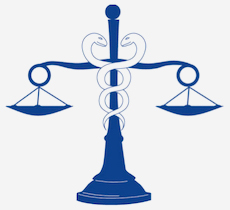Wednesday, November 5th, 2014
written by Susan Fenton, PhD, RHIA, FAHIMA
Ethics and the electronic health record (EHR) is an area that has not received a great deal of press or discussion in the literature. When it does, it is usually centered on use of the data, especially genomic data, or on protecting the privacy of the patients.
 While these are certainly important ethical issues, there is generally much less consideration given to the issue of software development and implementation—or the functionality being developed and any ethical conundrums that may arise during this process. Perhaps now that so many hospitals and clinics have implemented EHRs, the time has come to take a closer look at these issues.
While these are certainly important ethical issues, there is generally much less consideration given to the issue of software development and implementation—or the functionality being developed and any ethical conundrums that may arise during this process. Perhaps now that so many hospitals and clinics have implemented EHRs, the time has come to take a closer look at these issues.
First and foremost, it should be noted that software engineering as a profession has a Code of Ethics. The code lays out general guidance for engineers regarding their obligations to the public, clients, employers and employees. (Association for Computing Machinery and Institute for Electrical and Electronics Engineers, Inc., 1999)
A few selected quotes shared here convey the overall tone of this important technology-related ethical code:
“Ethical tensions can best be addressed by thoughtful consideration of fundamental principles, rather than blind reliance on detailed regulations…. to consider how the public, if reasonably well informed, would view their decisions;….and to consider whether their acts would be judged worthy of the ideal professional working as a software engineer.” (Association for Computing Machinery and Institute for Electrical and Electronics Engineers, Inc., 1999)
In short, as part of their measuring stick for evaluating their work in terms of its ethical nature, software engineers must keep in mind how their decisions in creating systems would be perceived by the public. It is my belief that these principles should be required considerations for anyone involved in creating, implementing or training on EHRs.
Cushman and colleagues (2010) have explored the ethical, legal and social issues (ELSI) of personal health records (PHRs) and related applications. In addition to considerations of privacy, confidentiality and data security, the areas of decision support and the legal-regulatory environment were discussed. One ethical issue involves the consideration of the different types of decision support to be provided, such as reminders to take medications or support requiring a sophisticated user interaction. Who makes the decisions on the types of decision support and who decides whether or not users are adequately prepared? Are there appropriate limits for decision support?
The legal-regulatory environment for PHRs or social media engenders ethical dilemmas precisely because it is currently in flux. Social media, including the Microsoft HealthVault or sites such as “23 and me,” is usually not covered under the Privacy or Security Rule of the Health Insurance Portability and Accountability Act. This means that all of the functionality on these health-related sites is the result of ethical decisions made by software engineers and other professionals.
Those of us who live and work in this world of EHRs need to pay attention. The decisions we are making today have long-term consequences and may have considerable influence for the future of our profession. In our everyday work, it’s vital that we consider the ethics of the EHR and related technologies and abide by the ethical code of our profession.
Association for Computing Machinery and Institute for Electrical and Electronics Engineers, Inc. (1999). Software Engineering Code of Ethics and Professional Practice. Retrieved August 20, 2014, from http://www.acm.org/about/se-code#full.
Cushman, R., Froomkin, A.M., Cava, A., Abril, P., and Goodman, K.W., (2010). Ethical, legal and social issues for personal health records and applications. Journal of Biomedical Informatics, October; 43 (5 Suppl): S51-5. doi: 10.1016/j.jbi.2010.05.003

Dr. Susan Fenton is the Associate Dean for Academic Affairs and Professor at McWilliams School of Biomedical Informatics at UTHealth Houston, formerly UTHealth Houston School of Biomedical Informatics (SBMI). She is a member of the American Health Information Management Association’s Council on Excellence in Education, and her research interests include workforce development, data management, ICD-10 implementation and health care associated infections.